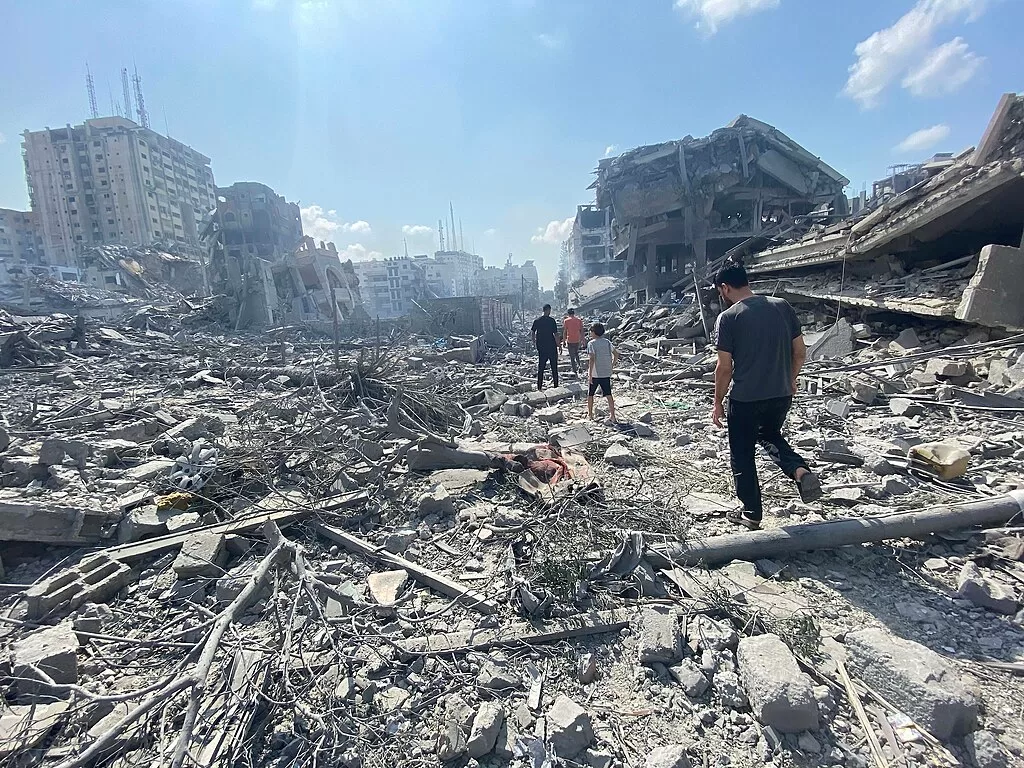The 21st century has simultaneously brought the world closer together and driven communities further apart. Technological advancements have enabled us to be more aware of the gift humanity can bring to the globe and of our unshaking ability to wreak so much damage.
This dichotomy of hope and hate has been sharply placed into focus in the Middle East.
This weekend marks the six-month anniversary of the horrific 7 October attacks on Israel.
Every night we turn on our televisions and witness the pain and suffering of peoples who yearn for peace.
1,269 children, women and men were brutally murdered by Hamas, with hundreds more tortured and taken hostage. This barbarity ignited a conflict between Israel and Hamas which, as of 5 March, has claimed the lives of 30,228 Palestinians and 1,410 Israelis.
Each person behind these faceless numbers leaves behind a pit of grief for loved ones which will never be filled.
The pain and suffering inflicted by the 7 October attacks have reverberated throughout communities, both in the Middle East and in countries across the planet. The war is leaving behind a trail of devastation and despair. Lives have been lost, families shattered, and entire communities torn apart. The aftermath of such violence cannot be overstated, and the scars it leaves behind run deep.
While Index on Censorship typically centres its efforts on defending freedom of expression, we cannot turn a blind eye to the urgent humanitarian crisis which has unfurled before us. It is crucial that we acknowledge the human toll of such conflicts and recognise the need for immediate action to alleviate the suffering of those affected.
In times of crisis, it is essential that the international community comes together to provide support and assistance to those in need. We must renew our efforts to secure a lasting peace in the region and work towards addressing the root causes of conflict.
This means prioritising humanitarian aid, securing the release of the hostages and ensuring that those devastated by the 7 October attacks receive the assistance they so desperately need. It also means holding accountable those responsible for perpetrating violence and ensuring that justice is served for the victims.
But beyond immediate relief efforts, we must also work towards addressing the underlying issues that fuel such conflicts. This includes addressing issues of inequality, injustice, and discrimination, which often serve as breeding grounds for violence and extremism.
As we reflect on the six-month anniversary of the 7 October attacks, let us not forget the human faces behind the headlines – the families mourning loved ones, the children traumatised by violence, and the communities struggling to rebuild in the aftermath.
As we look ahead, let us honour the memory of those we have lost by working tirelessly towards a future where such senseless violence is but a distant memory. Together, we can create a world where freedom, dignity, and human rights are upheld for all.






